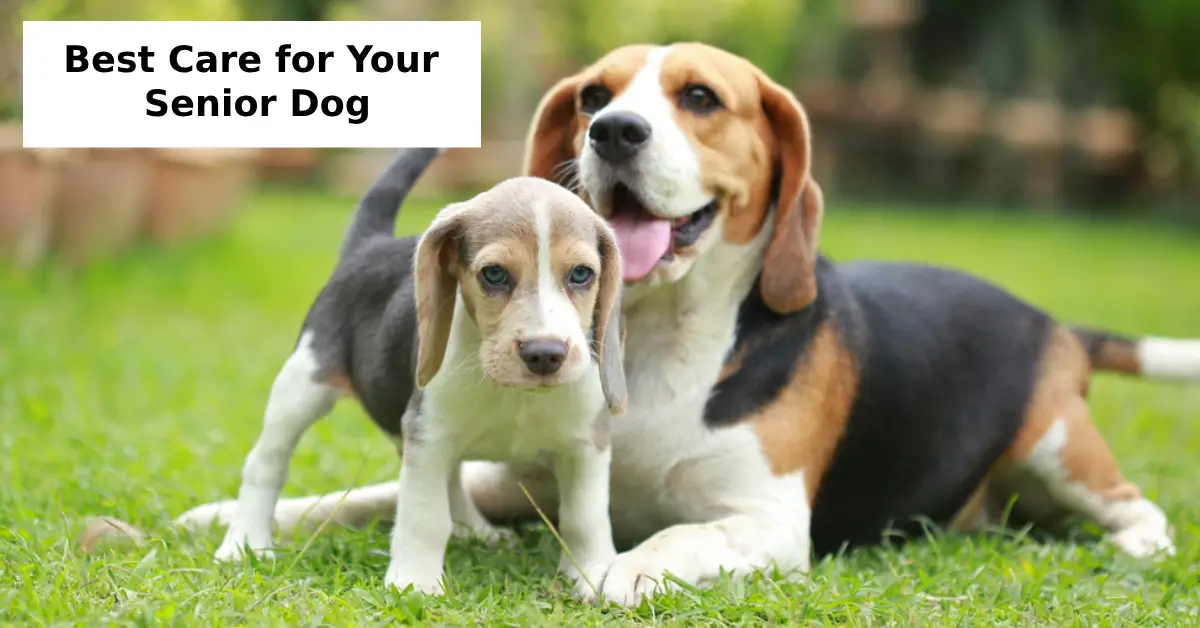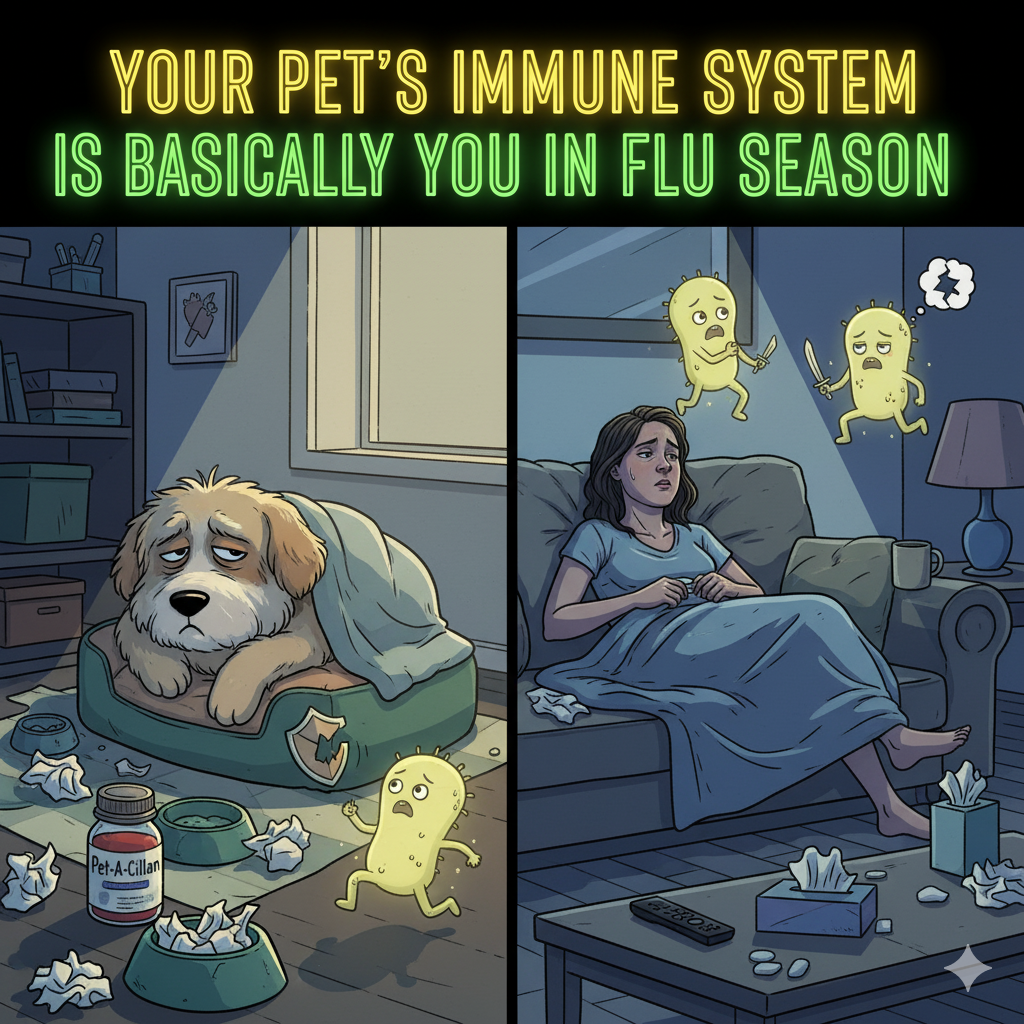As your beloved canine companion grows older, their needs evolve significantly. Providing the best care for your senior dog is essential to ensure they remain healthy, happy, and comfortable in their golden years. Whether you’re a first-time senior dog caregiver or a long-time pet parent, this guide offers expert tips grounded in compassion, veterinary insights, and practical strategies.
Why Senior Dogs Need Specialized Care
Dogs aged 7+ years are generally considered seniors, although this may vary by breed. Dog owners aged 30–65, especially those with dogs aged 7+ years, often notice subtle changes in energy, appetite, or behavior. Senior dogs may develop age-related issues like arthritis, dental problems, or cognitive decline. Thus, tailoring their care is essential.
Caring for aging dogs at home isn’t just about vet visits—it’s about daily attention to their evolving physical and emotional needs.
Creating a Comfortable Living Space
To provide the best care for your senior dog, start by optimizing their environment:
- Soft Bedding: Orthopedic dog beds help relieve pressure on aging joints.
- Mobility Assistance: Install non-slip mats and pet ramps to prevent slips and aid movement—this offers essential senior dog mobility support.
- Temperature Control: Older dogs are sensitive to cold or heat. Keep their resting space at a comfortable temperature year-round.
People searching for home care tips for aging dogs often overlook environmental comfort—but it plays a key role in improving quality of life.
Senior Dog Nutrition and Supplements
Pet parents looking for senior dog health and lifestyle advice should start with diet. Older dogs may need fewer calories but more high-quality protein, fiber, and nutrients.
- Best Dog Food for Senior Dogs: Choose food with antioxidants, omega-3 fatty acids, and glucosamine.
- Senior Dog Joint Supplements: Supplements with chondroitin and MSM help maintain mobility and reduce arthritis discomfort.
Always consult your vet before switching diets or adding supplements.
Senior Dog Dental Care Matters
Dental disease is common in older dogs, often leading to pain and infections. Regular brushing and dental checkups are essential for senior dog dental care. Use dog-safe toothpaste and consider dental chews or water additives approved by your veterinarian.
Neglecting dental health can affect vital organs, including the heart and kidneys—making dental hygiene a crucial part of the best care for your senior dog.
Understanding Elderly Dog Behavior Changes
As dogs age, behavior changes are normal. They may sleep more, become less active, or exhibit signs of confusion or anxiety.
- Watch for elderly dog behavior changes such as disorientation, house soiling, or increased barking.
- These could be signs of Canine Cognitive Dysfunction (similar to dementia in humans).
- A calm environment and mental stimulation—like puzzle toys—can help maintain cognitive function.
Always consult a vet if you notice sudden behavior shifts.
Regular Vet Care for Senior Dogs
Routine checkups every 6–12 months are vital. Vet care for senior dogs includes:
- Blood tests to monitor organ function
- Eye and ear checks
- Mobility and pain assessments
These visits help detect and manage conditions early, ensuring you’re consistently delivering the best care for your senior dog.
For pet care tips for first-time owners, a trusted vet is your best partner in navigating your dog’s senior years confidently.
How to Comfort an Old Dog Emotionally
Emotional support is just as crucial as physical care. How to comfort an old dog involves:
- Routine & Familiarity: Keep feeding, walking, and sleeping routines predictable.
- Affection: Offer gentle petting, soothing words, and calm company.
- Reduce Stress: Avoid loud noises and chaotic environments.
Your presence is comforting, especially when their senses start to dull. First-time senior dog caregivers wanting emotional and physical support guidance should focus on consistency and calm interactions.
Senior Dog Mobility Support Techniques
If your dog struggles to get up or walk, support their mobility:
- Use harnesses with lifting handles
- Elevate food and water bowls
- Incorporate gentle, low-impact walks or hydrotherapy
Senior dog mobility support not only helps with independence but also prevents muscle atrophy and boredom. It’s a critical step in offering the best care for your senior dog.
When to Euthanize a Senior Dog: A Heartfelt Decision
One of the hardest decisions a pet parent can face is knowing when to euthanize a senior dog. If your dog is suffering despite medical efforts—unable to eat, walk, or enjoy life—it may be time to consider humane euthanasia.
Talk to your vet and consider quality-of-life scales. This moment should always be approached with love, dignity, and support for both the dog and yourself.
Additional Senior Dog Health Care Tips
Here are a few more senior dog health care tips for comprehensive care:
- Keep a Daily Log: Track appetite, water intake, mood, and mobility.
- Groom Gently: Their skin may become sensitive. Use soft brushes and hypoallergenic products.
- Monitor Weight: Sudden changes can signal deeper issues.
For long-term wellness, consider subscribing to resources or communities that provide updated pet care tips for first-time owners.
Final Thoughts
Providing the best care for your senior dog is an act of love and gratitude. These dogs have offered years of companionship—and now it’s your turn to return the favor with tailored nutrition, consistent vet care, emotional bonding, and physical support.
Remember, you’re not alone. From dog lovers interested in nutrition, mobility aids, and health supplements to expert veterinary communities, many resources exist to help you offer the golden years your dog truly deserves.
Check out pet care tips for first-time owners to make your senior dog journey easier.





